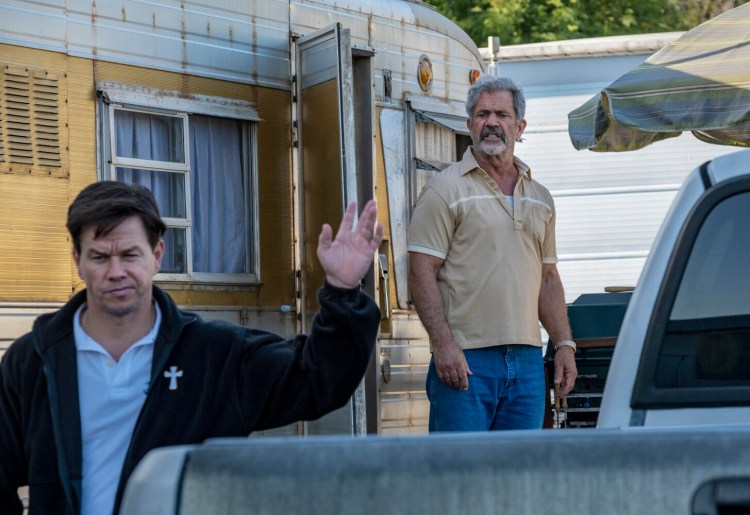It’s hard to know where to start with the movie “Father Stu,” so let’s begin with the facts.
Inspired by the true story of the late Stuart Long – an agnostic “pugilist with a criminal record,” as he’s described in the film, who became an unlikely Catholic priest after developing a debilitating and incurable autoimmune disorder, suffering a traumatic motorcycle accident, and experiencing a religious vision – “Stu” has been described as a six-year labor of love by star and producer Mark Wahlberg.
Wahlberg, who is Catholic, privately financed the project, which co-stars fellow Catholic Mel Gibson as Stuart’s abusive, atheist father and was written and directed by Gibson’s girlfriend, Rosalind Ross, making her directorial debut.
It’s a story of redemption, both Stu’s and his father’s, and it plays that tune like a novice pianist practicing chords, leaning into the narrative’s sentimentality and melodrama with a heavy and repetitive hand.
I can’t say all that much about the nuance of Ross’s screenplay, because a lot of what’s spoken, at least by Wahlberg, is imperfectly intelligible, thanks to a mumbling delivery by the film’s star. It’s a performance that takes the character from a buff, cocky, mustachioed young boxer-turned-wannabe-actor to a dying man.
“I ain’t doin’ no blue-collar (baloney),” Stu says, before heading off to Hollywood to make a cheesy commercial for mops, in between working the meat counter of a grocery store, where he meets the girl of his dreams (Teresa Ruiz). She’s Catholic, so Stu gets baptized to enhance his chances of sleeping with her.
Wahlberg’s portrayal of Stu, late in the film when the character is unable to walk, is aided by a shaved head, fat suit and facial prosthetics that render him almost unrecognizable.
It’s tempting to view all this a bid for serious-actor respectability, but Wahlberg himself has described the film in religious terms, characterizing it as a “calling.” It certainly feels as if he’s a man on a mission. But the sermon he’s delivering is an inept piece of religious propaganda.
“God saw something in you worth saving,” a friend (Aaron Moten) tells Stu, after a mysterious, Christlike stranger has appeared next to the protagonist in a bar (a scene that is quickly followed by the aforementioned motorcycle accident, which leaves Stu a mangled wreck). That’s where another apparition – of a beatific woman, surrounded by hazy, white light – convinces Stu to become a priest.
Let’s not dwell on the question of whether someone being worth saving implies that others are not. The film is filled with theological arguments that, while accepted by many Catholics, are fair grounds for debate. The most prominent of these arguments is the idea – a central tenet of faith for many Catholics – that suffering is a gift.

Mark Wahlberg in “Father Stu.” Karen Ballard/Sony Pictures/Columbia Pictures
And while “Father Stu” is convincing in its contention that – for the Stu we see on-screen, at least – suffering was, in fact, life-altering, the film elides any quibbles that might arise over the notion of a supreme being who picks and chooses people to endure, in effect, terrible things, while seemingly letting others off the hook. The idea that God doesn’t give you more than you can handle (a paraphrasing of Corinthians 10:13) is an oft-cited precept of Catholic faith.
It is hard, if not impossible, to review a film like this without also looking critically at its unabashedly proselytizing message, which for some might come across less as an inspiring true-life tale than as marketing for what, in Ross’s hands, looks like a cult of masochism.
But faith, whether it be Wahlberg’s or your own, is never up for review. “Father Stu,” on the other hand, is. And its clumsy, inert storytelling seems less interested in converting nonbelievers than in convincing us of Wahlberg’s piety.
Send questions/comments to the editors.



Comments are no longer available on this story